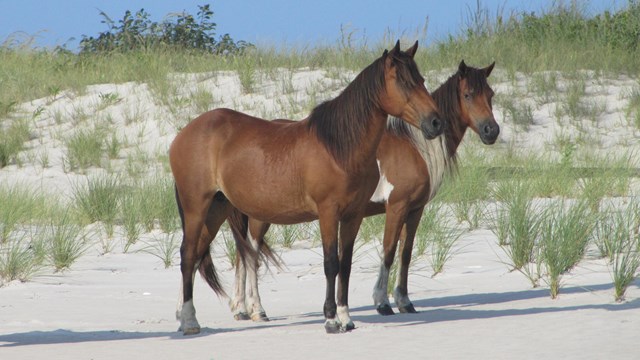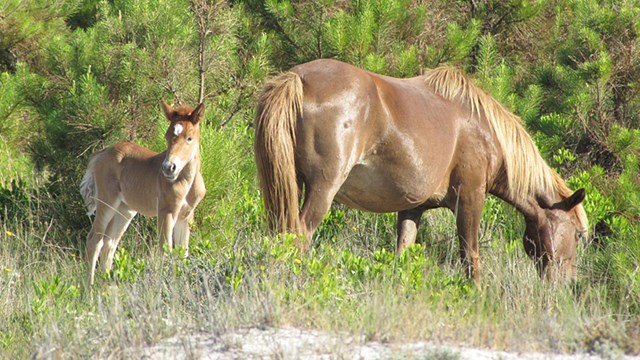|
During your visit to Assateague, you will most likely encounter at least a few of the island’s most popular residents. Petting or feeding the wild horses may seem like a harmless and fun thing to do, but the consequences can be terrible. For your safety and the safety of the horses, please obey park regulations and do not approach, touch or feed the Assateague horses. 
The Dangers of Being Too Close
The Dangers of Petting and Feeding Wild Horses
In searching or begging for food, horses:

Things to Remember While Observing Wild Horses

How Close is "Too Close"?

NPS Photo ConsequencesThis stallion was hit and killed by a car. The average death toll for horses on the park’s roads is one per year. Horses which are not used to people spend very little time near roads, and are much less likely to end this way. 
Wild Horses
Enjoy their beauty from a distance, and you can help make sure these extraordinary wild horses will continue to thrive on Assateague Island. 
Horse Resource Brief
Learn about how the National Park Service manages the population of wild horses on Assateague. |
Last updated: February 27, 2021
